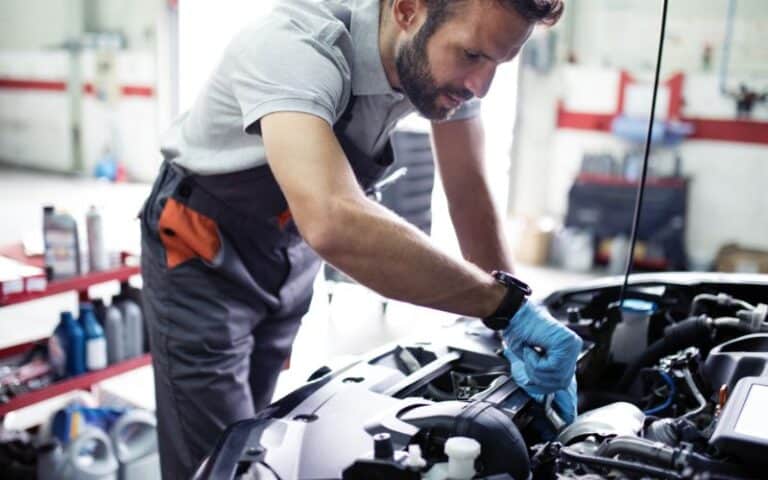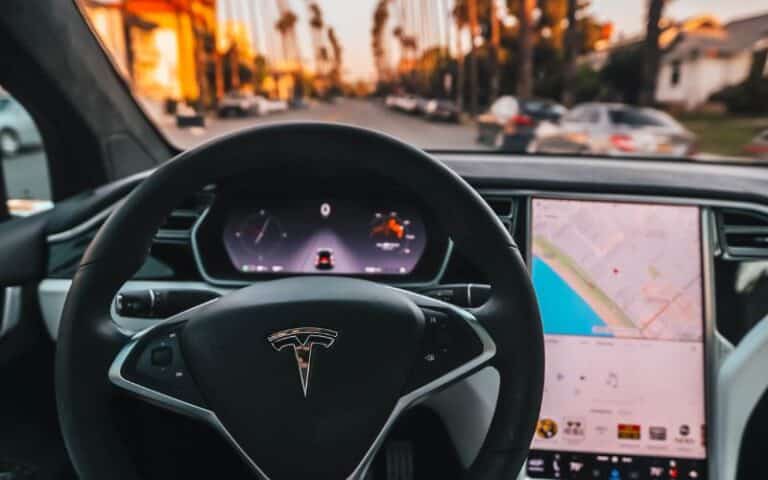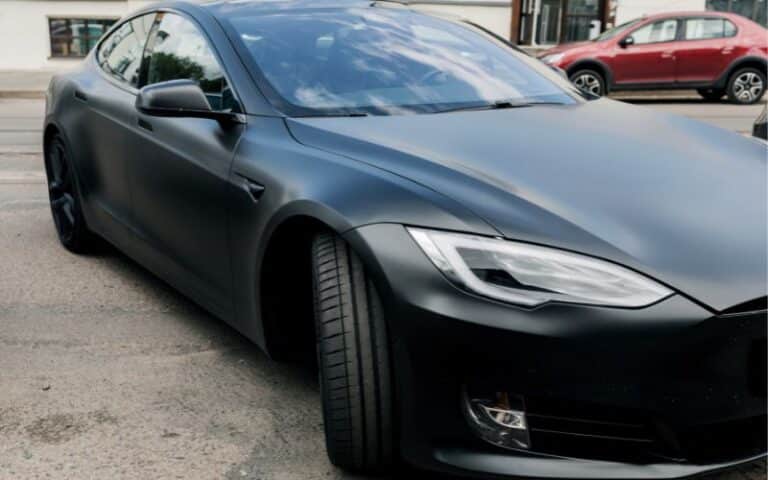Trade-in Valuation in Progress? What to Expect Next!
Electric vehicles are gradually taking over the automobile industry because of the cost-efficiency of owning one over a gasoline-dependent vehicle.
However, if you’re looking towards joining the train, the high price of these vehicles might pose a challenge.
Conversely, all hope is not lost because several brands offer trade-in policies.
The trade-in valuation scheme is becoming popular as people are keying into this prospect to lower the cost of a new vehicle.
But how does this program work?
A trade-in valuation of a car is the process of deciding the market value of a vehicle on trade-in for a new one. This process depends on several factors: manufacturer, design, year, condition, mileage, and vehicle demand. Also, the trade-in dealer will inspect the car before offering a price. Several automobile brands offer this program, including Tesla.
In this article, I’ll explain what trade-in valuation in progress means and how it works. Also, I’ll discuss how long a Tesla trade-in program takes and whether their valuation is accurate.
Ultimately, you’ll know whether Tesla trade-in offers are final.
What Does Trade-in Valuation in Progress Mean?

A trade-in valuation is the appraising of a vehicle on trade-in for its worth.
This process involves taking your old vehicle to an auto dealer who determines the market value after a thorough inspection.
The value serves as the down payment for purchasing a new car.
Additionally, this scheme offers advantages over selling your used car privately, including easing the selling process.
A trade-in process can vary slightly across dealers’ and brand owner’s policies.
Usually, car traders use data from agencies such as Edmunds and JD Power to estimate the fair market value of the trade-in vehicle.
Also, some procedures involve the consumers bringing in their vehicles for physical inspection before payment.
However, this process is often inconvenient to the consumer.
Consequently, many auto dealers rely on vehicle inspection software to inspect the vehicle to ease stress and save time.
Notwithstanding, certain important factors determine the value you’ll get for your car while trading in.
Below are some of the factors that determine the trade-in value of your vehicle:
#1. Vehicle’s Condition
The vehicle’s condition is one factor determining the value of your trade-in car. Cars in good condition will get a higher value than those in poor condition.
First, vehicle appraisers often check for scratches, dents, thread wear, and mechanical issues.
Also, a physical inspection will include a test drive to check the brakes, acceleration, odometer operation, and overall handling.
In addition, they check the cost of repairs on damaged parts. Therefore, regular maintenance is crucial to boost future resale value.
#2. Mileage
Your car’s mileage is another significant factor that can boost or reduce your trade-in value.
According to the Department of Transportation, the average mileage in the US in a year is approximately 13,500.
Suppose you drive above this average in a year. In that case, it’s a red flag to potential buyers, as mechanical issues will likely develop in your car.
As a result, a vehicle with lower mileage will get a higher value.
Conversely, a vehicle in better condition with slightly higher mileage will get a better value than a car with a low mileage in poor condition.
#3. Car History Maintenance
How you maintained your care is another impacting factor on the trade-in value. Following the manufacturer’s maintenance schedule and presenting the evidence can boost the value.
#4. Features and Model
The make and model of your car also affect the offer you’ll get for it while trading in. Usually, newer and more popular models get higher offers than older and less popular ones.
Also, buyers love vehicles with automatic transmissions, power locks, anti-lock brakes, remote start, and sunroofs.
Therefore, dealers will appreciate vehicles with these features more.
#5. Economy and Age of Your Trade-in Vehicle
The current economy can also affect the value of your car while trading it in.
When the economy isn’t favorable, it’s unlikely to have high demand for new cars, which can affect the value of your car.
Also, vehicles depreciate as they age. The value keeps dropping year after year. Consequently, newer vehicles get more demand than older cars. Therefore, they get a higher value.
#6. Time of Trade in
The time of trading in can also impact the value of your vehicle. You’ll get a higher value if you trade in when vehicles are in high demand.
A good time to trade is during the spring or summer. However, an SUV will be more appealing in the winter if you live in a harsh climate.
How Long Does a Tesla Trade-in Valuation Take?
Tesla trade-in valuation can last up to 7 days. However, you can determine how long it lasts if you provide the necessary information to them quickly.
After submitting all required details, the online calculator estimates the initial quote within minutes.
After the initial quote, you’ll need to send in pictures of your vehicle for inspection, including images of damages. Once you meet all the requirements, you get the final quote.
If you accept the offer, you must submit a photo of the vehicle’s title and a valid registration card.
However, the final offer is valid for 30 days or 1000 miles. So, you’ll need to respond within this period. After the stipulated time elapses, you’ll get a new quote.
You’ll hand over your vehicle on the day of delivery of your new car.
Are Tesla Trade-in Valuations Accurate?
Tesla Trade-in valuations are often accurate. They use a calculator that determines your vehicle’s worth by considering the year, mileage, condition, model, and market value.
You’ll get an estimate of your vehicle’s worth by submitting the details on their Trade-in page.
Also, you can trade in a non-Tesla vehicle. Tesla accepts passenger cars, vans, SUVs, and trucks for trade-in. However, commercial vehicles, motorcycles, and RVs are not acceptable.
Based on market data, Tesla uses industry-standard apparatus and resources to determine trade-in value for non-Tesla.
Furthermore, suppose your vehicle is in good condition and has low mileage. In that case, you’ll get a high value. Also, you can get a higher value if the market is favorable.
Overall, Tesla offers a fair price that’s non-negotiable.
Below are the necessary information you need to provide to get your trade-in value:
- VIN (vehicle identification number). You can find this number on the car’s title or in the bottom-left area of the dashboard in front of the steering wheel.
- Odometer mileage
- Zip code
- Damage history
- Year
- Registration number
- Photos of your vehicle (the exterior, interior, front, rear, driver and passenger’s side)
Below are what you can do to maximize the value of your trade-in
- Be accurate: ensure the information you provide is accurate, or be prepared for a surprise during the hand-off process.
- Time properly to your advantage: the best time to get good value for your trade-in is during the summer or spring when demand is high. Also, a convertible is more appealing during the summer, while an SUV works during the fall or winter.
- Pay attention to the appearance: while you may not need a complete reconstruction, a neat appearance gives you an advantage. A wash and wax can help.
Are Tesla Trade-in Valuation Offers Final?
Yes, Tesla trade-in valuation offers are final. While you may be able to negotiate with other trade-in dealers, Tesla trade-in values are non-negotiable and don’t equal competing offers.
When you submit your vehicle for trade-in, they take their time to research the car’s value and inspect it.
After the whole process, they give you a final offer that doesn’t require you to hassle.
Below is a table showing the pros and cons of Tesla’s trade-in valuation.
| Pros | Cons |
|---|---|
| Tesla trade-in process is convenient and time-saving | Allowing delivery time to elapse can affect your offer |
| They offer a fair and accurate price based on the information you submitted and market value | Their offers are non-negotiable |
| Tesla adds loan payment on trade-in into your new purchase | They don’t provide trade-in values for software purchases and other bonus |
| You can trade in non-Tesla conveniently | Tesla’s trade-in value is usually lower than other popular dealers and sells privately. |






